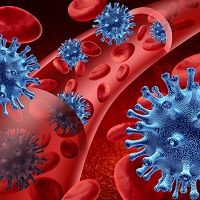Article
Why Did This HIV Vaccine Candidate Fail?
Author(s):
Although a vaccine induced antibodies specific to the human immunodeficiency virus (HIV), it failed to protect against the infection.

Although a vaccine induced antibodies specific to the human immunodeficiency virus (HIV), it failed to protect against the infection.
The initial HVTN 505 clinical trial began enrolling volunteers in 2009 and was discontinued in 2013 due inefficiency. In a new analysis published in Science, researchers from the National Institute of Allergy and Infectious Diseases (NIAID), a part of the National Institutes of Health (NIH), and Duke University explained why the vaccine failed and what that means for future HIV approaches.
The HVTN 505 vaccine was administered in two parts, the first being an initial or “prime” dose and the second a booster vaccine. When the researchers analyzed the samples from the males ages 18 to 45 included in the trial, they found that most of antibodies induced by the vaccine recognized the HIV surface protein, gp41. However, the antibodies did not neutralize the virus.
“Instead, the antibodies were polyreactive, recognizing other proteins common to bacteria, such as Escherichia coli, a naturally occurring part of the body’s intestinal microbiome,” an NIH statement said.
Polyreactivity — which previous research suggests is caused by immune cells in the intestinal tract stimulated by the microbiome – may induce ineffective antibodies to attack gp41 as opposed to working to neutralize HIV.
“In support of this idea, the study team traced the linage of a specific vaccine-induced antibody to a polyreactive precursor that also recognized the intestinal microbiome,” the report continued.
This is an obstacle that other pathogen specific vaccines must tackle in order to be effective as well. However, additional research is needed to pinpoint the relationship between the microbiome and effectiveness of vaccine-induced antibodies.
“Further understanding of how the microbiome influences vaccine-induced immunity also may be leveraged to elicit the most beneficial immune response,” the statement concluded.
The HVTN 505 vaccine failed to protect against HIV, but this roadblock is not a dead end due to the information gathered for future vaccine development.





